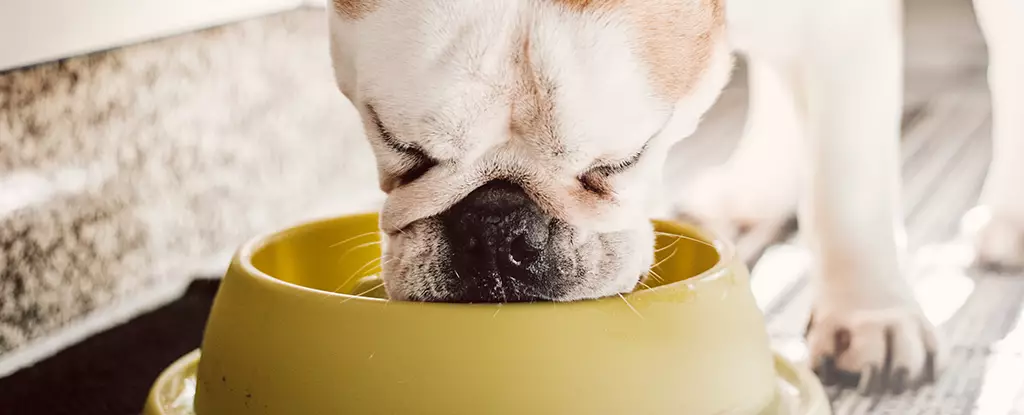A recent study conducted by researchers from the University of Bristol in the UK has uncovered a concerning connection between feeding healthy pet dogs raw meat and the presence of antibiotic-resistant Escherichia coli (E. coli) bacteria in their feces. This finding raises alarm bells as it suggests that dangerous bacteria could potentially be transmitted between humans and farm animals through the consumption of raw meat by dogs. The study, which analyzed the fecal samples of 600 dogs, highlights the need to address the risks associated with feeding dogs raw food.
The research team carefully examined the poop samples from the dogs and also collected information through surveys completed by the dog owners. The surveys covered various aspects such as the dogs’ diet, other animal companions, and their walking and playing environments. Surprisingly, the analysis revealed that the sole significant risk factor contributing to the excretion of antibiotic-resistant E. coli was the consumption of raw meat. This implies that dogs on a raw food diet are more likely to excrete ciprofloxacin-resistant E. coli.
The study further discovered that the E. coli strains most commonly identified in dogs from rural areas matched those found in cattle. This observation suggests a potential transmission route between dogs and livestock. In urban areas, dogs were more likely to have E. coli strains that are typically found in humans. This finding points to a complex mix of infection routes, requiring a deeper understanding of the interactions between humans, animals, and the environment.
Considering the implications of their research, the researchers from the University of Bristol urge dog owners to reconsider feeding their pets raw food. Additionally, they recommend livestock owners to reduce the use of antibiotics on farms where dog food is sourced, as this practice contributes to the development of antibiotic resistance. Implementing individual measures to mitigate the risk of resistant bacteria excretion, such as transitioning to a non-raw food diet or sourcing high-quality raw meat that can be cooked, is crucial. It is important to note that most commercially available raw dog food is not suitable for cooking and may pose serious health hazards if consumed by dogs.
While E. coli is a normal part of the gut microbiome in both humans and animals, certain strains can cause severe health problems, particularly in individuals with weakened immune systems. Infections caused by antibiotic-resistant E. coli are especially concerning, as they become significantly more challenging to treat. This emphasizes the need for a comprehensive understanding of the interconnectedness between the health of humans, animals, and the environment. Molecular bacteriologist Matthew Avison from the University of Bristol suggests that stricter regulations should be in place to limit the number of bacteria allowed in meat intended for consumption without cooking, compared to meat intended to be cooked.
The study conducted by the University of Bristol sheds light on the potential risks associated with feeding dogs raw meat. The findings emphasize the urgent need to address the issue of antibiotic-resistant bacteria and its transmission through the food chain. By implementing proper measures such as transitioning to non-raw food diets for pets and reducing antibiotic use in livestock farming, we can take a step towards safeguarding the health and well-being of both humans and animals.


Leave a Reply